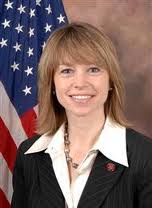
Washington D.C – On Thursday July 29, 2010, the House Veterans’ Affairs Subcommittee on Economic Opportunity, led by Chairwoman Stephanie Herseth Sandlin, held a hearing to examine programs developed by the Department of Labor (DOL), Department of Defense (DOD), and the Department of Veterans Affairs (VA) to assist veterans transitioning from a military to civilian career.
“While service members and veterans all have unique career goals, it is critically important that all federal agencies continue to work hand-in-hand to provide the best employment assistance available to our men and women who have answered our Nation’s call to duty,” said Chairwoman Herseth Sandlin. “Previous hearings have identified barriers encountered by veterans, such as non-transferable military occupational skills, repetitive training and education requirements, inadequate benefits, and a Transition Assistance Program (TAP) that needs improvement. I look forward to continuing to work with the dedicated folks at the different agencies to improve employment opportunities for America’s veteran population.”
Hearing participants described the predicament facing veterans that civilian employers do not recognize military experience. This can cause an undue burden for veterans interested in applying military skills to a civilian career. Some veterans who have worked in the capacity of a mechanic or electrician during their service in the military have to essentially start from step one when they transfer to the civilian equivalent. This is because the civilian occupation requires a state accredited license, something that the military, as a federal entity, cannot grant. However, DOD has partnered with DOL and public and private organizations in order to address this issue.
The representatives from the veteran service organizations spoke on the existing difficulties with military career and education transition, such as the reluctance of institutions of higher learning to accept military credit and cumbersome state licensing boards. Eric Hilleman of Veterans of Foreign Wars cited that, although the DOD has contracted the American Council on Education (ACE) to evaluate military courses and translate them into applicable civilian credit, only a handful of schools actually accept that credit. This leads to veterans having to enroll in courses that he or she has already passed during his or her time in the military. Veterans of Foreign Wars recommended that the committee fund a comprehensive study of military training by the ACE. Thomas Zampieri of the Blinded Veterans Association suggested that universities that accept federal money should be “encouraged” to consider veteran experience during the admissions process and possibly provide veteran education counseling.
Military.com representative, Dr. Vincent Patton, highlighted the company’s success with veteran job placement. The company provides an online forum where veterans can access mentors and learn of career opportunities. Dr. Patton criticized DOD’s TAP when he said that the program acts like a “one size fit all” where it attempts to quickly force information about career and education opportunities in a few class hours. He spoke of the success of the mentoring program and recommended DOD include one-on-one counseling and guidance in its plans to redesign TAP.
Representatives from DOD and DOL reviewed current services available for veterans. Deputy Under Secretary of Defense John Campbell focused on how the different branches work to create applicable programs for transition to civilian life, including the Occupational Information Network (O*Net) and TAP. Campbell also pointed to the promise and success of the ACE evaluation partnership, which allows military training to be translated into its civilian equivalent. Assistant Secretary for Veterans’ Employment and Training Services at DOL Raymond Jefferson discussed the Veterans’ Employment and Training Service (VETS) which works with non-profit organizations and public and private industries in order to accelerate the licensing and credentialing process for veterans. DOL also highlighted its new pilot programs for the JobCorps/VETS to provide job training.
“The best military in the word has spent millions of dollars training, educating, and certifying our service members who perform with distinction in difficult situations and under extreme pressure,” said Chairman Filner. “Our Nation’s civilian workforce stands to benefit from the intangible value of America’s veteran force. We must help veterans secure the correct licensure and certification to properly communicate to employers of the vast and thorough training and experience of service members.”
WITNESS LIST
Panel 1
Eric A. Hilleman, Director, National Legislative Service, Veterans of Foreign Wars of the United States
Joseph C. Sharpe, Jr., Director, National Economic Commission, The American Legion
Thomas Zampieri, Ph.D, Director of Government Relations, Blinded Veterans of America
Vince Patton, Ed.D., Master Chief Petty Officer of the United States Coast Guard (Ret.), Director, Community Outreach, Military.com/Monster Worldwide
Panel 2
The Honorable Raymond M. Jefferson, Assistant Secretary for Veterans’ Employment and Training Service, U.S. Department of Labor
John R. Campbell, Deputy Under Secretary of Defense, Wounded Warrior Care and Transition Policy, U.S. Department of Defense
Accompanied by
Ron Horne, Deputy Director of Transition Assistance Program, Wounded Warrior Care, Transition Policy, U.S. Department of Defense
Margarita Cocker, Deputy Director, Vocational Rehabilitation and Employment Service, Veterans Benefits Administration, U.S. Department of Veterans Affairs
Prepared testimony and a link to the webcast of the hearing are available on the internet at this link: http://veterans.house.gov/hearings/hearing.aspx?newsid=609.
Chairwoman Stephanie Herseth SandlinWashington D.C – On Thursday July 29, 2010, the House Veterans’ Affairs Subcommittee on Economic Opportunity, led by Chairwoman Stephanie Herseth Sandlin, held a hearing to examine programs developed by the Department of Labor (DOL), Department of Defense (DOD), and the Department of Veterans Affairs (VA) to assist veterans transitioning from a military to civilian career.
ATTENTION READERS
We See The World From All Sides and Want YOU To Be Fully InformedIn fact, intentional disinformation is a disgraceful scourge in media today. So to assuage any possible errant incorrect information posted herein, we strongly encourage you to seek corroboration from other non-VT sources before forming an educated opinion.
About VT - Policies & Disclosures - Comment Policy



